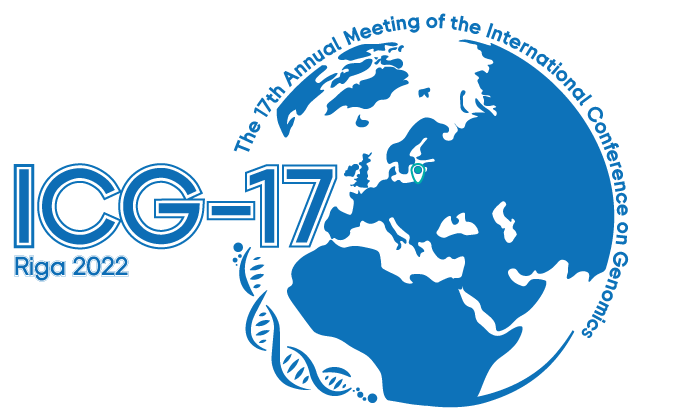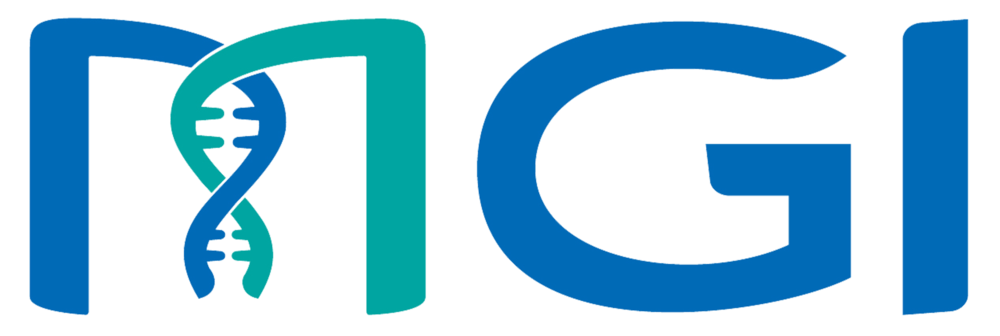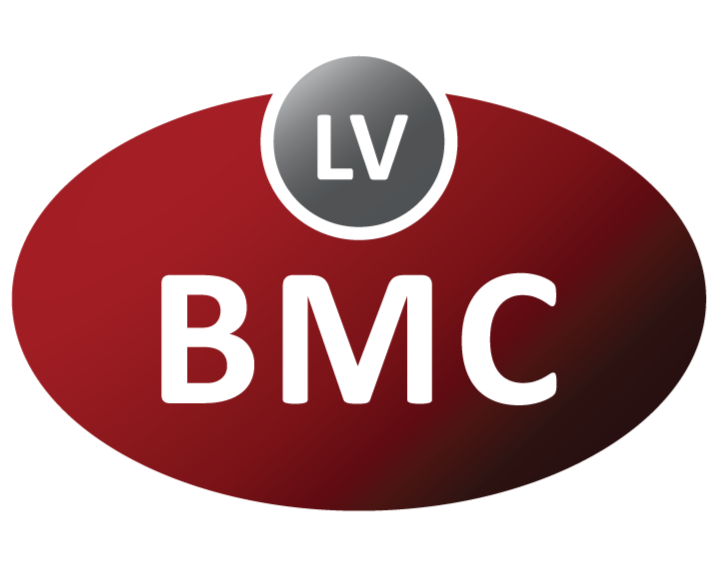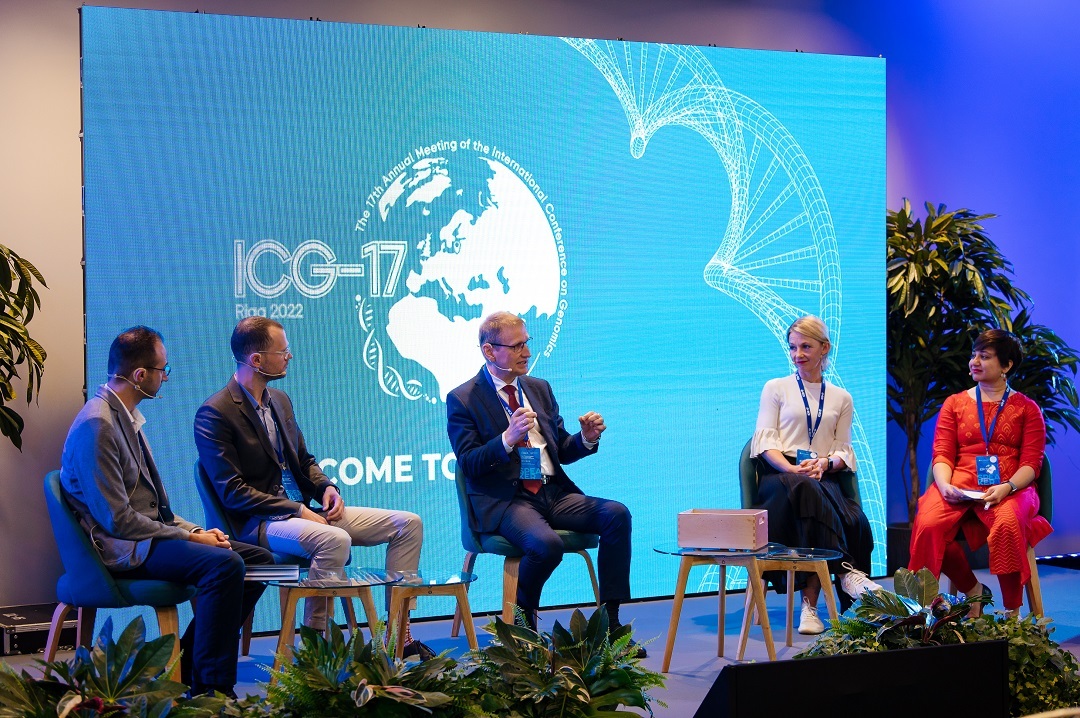
Under the theme OMICS FOR ALL, ICG-17 aims to provide a platform where leaders in the emerging field of genomics meet and share their experience, knowledge, and insights, to advance understanding and collaborations in omics. This year’s conference is held in Riga, a trade, transit, and industrial center in Latvia, as well as home to MGI’s Latvian facility, which since 2019 has been a dynamic hub for research and development, production, logistics and training for its customers and scientific collaborators in Europe and Africa.
ICG-17 promises to provide a comprehensive and insightful scientific agenda filled with presentations and sharing by expert speakers and scientific sessions on topics including single-cell and Stereomics, microbiome and multi-omics, precision medicine, multidisciplinary view on COVID-19 research, women in science, and biobanks and health data in personalized medicine development. The event also sees MGI scientists sharing the data performance of the new HotMPS* chemistry on DNBSEQ-G400** and DNBSEQ-T7**, including results on various applications such as WGS, WES, RNA-seq, and third-party libraries.
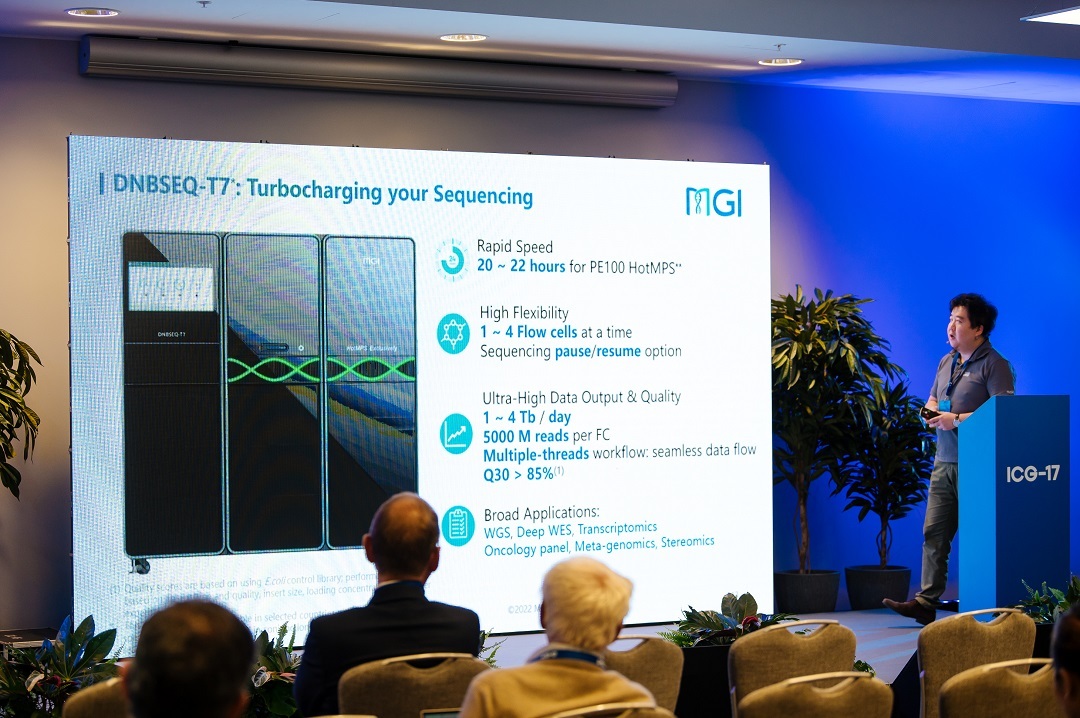
HotMPS* inherits the advantages of MGI’s proprietary DNBSEQTM technology*** to deliver low error rates, low duplication rates, and low index hopping, while achieving fundamental breakthroughs in the nucleotides and enzymes used in the sequencing process. The high-throughput sequencing kit*, which is commercially available in selected countries, was launched to be compatible with DNBSEQ-G400** in late April and has now been further expanded for use on DNBSEQ-T7** which vastly improves speed, throughput, and flexibility. In his presentation, key speaker Dr. István Szatmári from the University of Debrecen in Hungary showcases the quality of the new chemistry on MGI platform and confirms the suitability of HotMPS* combined with DNBSEQ-G400** for global transcript profiling.
At the ICG-17 in Riga, BGI STOmics announces a spatial transcriptomics grant program, which will provide 12 Stereo-seq (Spatial Enhanced Resolution Omics-Sequencing) chips (1cm*1cm), sequencing and data analysis to selected projects by researchers across the globe, excluding mainland China. MGI will provide MGI sequencing products for this Grant. This new groundbreaking spatial temporal technology provides a powerful research base for advanced analysis of gene expression, cell type identification and cell-to-cell communication in nascent tissue microenvironment with its unprecedented field-of-view, high throughput, ultra-high resolution in spatial transcriptomic research. Based on DNA Nanoball (DNB) technology, Stereo-seq chip is designed for in situ mRNA capture and localization. Subsequently captured mRNAs can be restored to their spatial positions by establishing the mapping relationship between spatial coordinates ID (CID) and chip's coordinate positions, while spatially resolved molecular information can also be obtained using Stereo-seq.
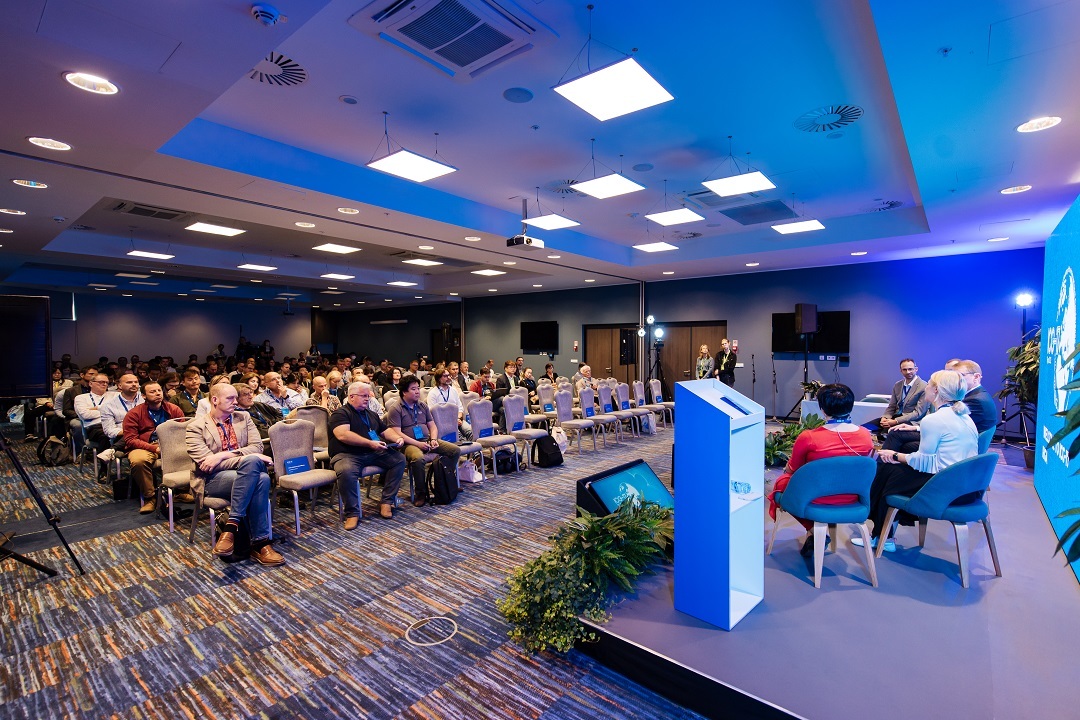
“I am thrilled that so many brilliant minds from Europe, Africa and beyond are gathering to share their knowledge and experience in further advancing genomics science,” said Dr. Yong Hou, General Manager of MGI Europe and Africa. “With the mission to develop and promote advanced life science tools for future healthcare, we at MGI are proud to introduce our latest innovations. DNBSEQ-T7* boasts high data quality and flexible operation mode. Its high degree of automation maximizes DNBSEQ-T7’s* powerful data output capacity and effectively saves manpower and material costs. It fully supports genome-wide sequencing, ultra-high-depth whole exome sequencing, epigenome sequencing, tumor large gene detection, and other application scenarios with its high speed, high flexibility, and ultra-high throughput advantages. In addition, we are excited to facilitate scientific discoveries through fruitful discussions at ICG-17, while empowering scientists with our new Stereo-seq grant.”
Since 2006, ICG has brought together over 1,000 top scientists, practitioners, institutional executives, Nobel Laureates, academics, and entrepreneurs from around the world for open sharing and discussion related to OMICS. There have been more than 10,000 on-site attendees and 10 million from online in the past 17 years.
"Bringing brilliant minds together is always a good idea,” said Prof. Fred Dubee of BGI and key founder of ICG. “I am excited to meet everyone during ICG-17.”
ICG-17 is a hybrid conference and online event registration is open for all here. For more information about the event, please also visit the official website here.
About MGI
MGI Tech Co., Ltd. (MGI), an affiliate of BGI Group, is committed to building core tools and technology to lead life science through intelligent innovation. Based on its proprietary technology, MGI focuses on research & development, production and sales of sequencing instruments***, reagents***, and related products to support life science research, agriculture, precision medicine and healthcare. MGI's mission is to develop and promote advanced life science tools for future healthcare. As of December 2021, MGI has a footprint that spans across more than 80 countries and regions, serves over 1,300 international users and employs more than 2,050 professionals globally, around 35% of which are R&D personnel. For more information, please visit MGI website or connect on Twitter, LinkedIn or YouTube.
Remarks:
The HotMPS sequencing reagent can only be used with MGI’s sequencer whose software has been configured for HotMPS, and will not work effectively with MGI’s sequencer whose software has not been properly configured for HotMPS. Use of these reagents with sequencers whose software has not been configured for HotMPS will invalidate any warranty which may have been provided by MGI, and any liability for intellectual property infringement arising from the use of such reagents is excluded from any IP indemnity.
MGI’s sequencer whose software has been configured for HotMPS MUST be used in conjunction with MGI’s HotMPS sequencing reagent, and MUST NOT be used with MGI’s CoolMPS or StandardMPS reagents (or with any reagents containing a 3’O-azidomethyl blocking group). This is important because (i) such sequencers will not work effectively with MGI’s CoolMPS or StandardMPS reagents (or with any reagents containing a 3’O-azidomethyl blocking group); and (ii) the use of such reagents will give rise to the risk of patent infringement proceedings. Use of MGI’s CoolMPS or StandardMPS reagents (or with any reagents containing a 3’O-azidomethyl blocking group) with such sequencers will invalidate any warranty which may have been provided by MGI, and any liability for intellectual property infringement arising from the use of such reagents is excluded from any IP indemnity.
*This sequencing reagent is only available in selected countries.
**This sequencer is only available in selected countries, and its software has been specially configured to be used in conjunction with MGI’s HotMPS sequencing reagents exclusively.
***Unless otherwise informed, StandardMPS and CoolMPS sequencing reagents, and sequencers for use with such reagents are not available in Germany, Spain, UK, Hong Kong, Sweden, Belgium, Italy, Finland, Czech Republic, Switzerland, Portugal, Austria and Romania. No purchase orders for StandardMPS products will be accepted in the USA until after January 1, 2023
